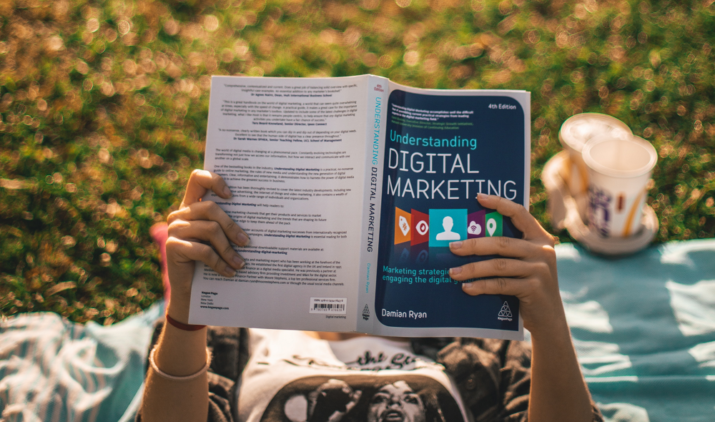The industry is evolving so quickly, that keeping up with digital marketing trends can be difficult. Plus, a great digital marketing plan or campaign has a lot of moving pieces, making it difficult to keep track of everything. As customers went online to study, review, and buy, the Covid-19 pandemic changed the way B2B and B2C enterprises across sectors operated. This shift has had a significant impact on the digital marketing industry and digital marketers’ roles. The top digital trends in the different sectors in 2022 are:
TikTok
Brands must take TikTok seriously as it continues to grow. TikTok is a platform to consider if we aren’t currently using it when it comes to social networking. TikTok’s quick growth has exceeded 1 billion users and counting. TikTok has a large user base and allows people and businesses to have their videos become viral. Marketers should not undermine the importance of TikTok as it is the next big thing on social media.
Social Commerce
David Farkas, CEO of The Upper Ranks believes that seamless Social Commerce Is Coming. He claims that using social media to discover a product or service has “never been easier”. Brands flocked to Instagram, YouTube, and TikTok during the pandemic to offer clients online shops to replace their brick-and-mortar equivalents. The social buying experience will evolve in 2022 as platforms work behind the scenes to enable user payments without leaving social media apps, resulting in a more seamless customer experience.
Marketers Must Improve Their Digital Skills
Digital expertise is in high demand across industries as organizations scramble to engage, market, and convert online. There is a significant digital skills gap, and every company wants to improve its digital marketing capabilities. However, many people are having difficulty finding talent. Up-skilling employees should be high on the list of priorities for organizations this year.
The Rise of the Digital Gig Economy
Many professionals have chosen a more flexible ‘gig’ lifestyle for their working lives over the last decade. People can now work from home instead of a regular 9 to 5 employment thanks to the rise of online services and apps like fiver and Upwork. Marketers with in-demand abilities can benefit from the gig economy. More and more creative or digital marketing professionals are opting for the digital nomad lifestyle since it allows them to set their own hours and be more flexible. Furthermore, many digital nomads earn more than they would in a typical job.
The Metaverse
The metaverse has been there for a while, but marketers became aware of it once Facebook changed its parent company’s name to Meta in October 2021. The metaverse, like social networking when it first began, is the next frontier in connecting people. The Metaverse is a network of three-dimensional virtual worlds that people can link using Augmented Reality (AR) and Virtual Reality (VR) (VR). The metaverse is a relatively new digital medium for marketing, but recent campaigns have seen firms take use of its immersive nature to advertise. Robolox, for example, featured Gucci Garden, a location where visitors could try on and purchase digital Gucci merchandise to outfit their avatars. Its goal was to raise money.
Artificial Intelligence
It will both obstruct and facilitate us. In recent years, data breaches have frequently made the news, putting people’s personal information in danger. Customers and brands are increasingly concerned about the prospect of sensitive data being hacked or disclosed as our world becomes increasingly online. People’s data is being collected without their knowledge thanks to Artificial Intelligence (AI). As AI advances, it gains the potential to collect personal data and invade people’s privacy. However, there are ways to employ AI while maintaining privacy. Companies can use AI to classify sensitive data and search data for individuals who have requested to be forgotten as part of their data protection initiatives.
Digital Talent Hunt
It’s no surprise that organizations all around the world are battling to locate and retain people as demand for digital knowledge grows and the ‘gig economy’ expands. Employers must be proactive in their hiring and retention efforts. They must examine their Employer’s Value Proposition in order to attract and retain talent (EVP). Unlimited vacation days may have been a desirable bonus a few years ago, but with hybrid and remote working, this benefit has fallen out of favor. Companies must refocus and determine what employees now value.
Use of NFTs
A non-fungible token is financial security made up of digital data kept in a distributed ledger called a blockchain. NFTs can be sold and exchanged since their ownership is recorded in the blockchain and can be transferred by the owner. NFTs will be used by brands. As a digital marketing trend, they are invading the marketing industry. Brands are employing NFTs to link owners to communities or as a digital badge, which is a big element of the metaverse. For example, Disney, the media behemoth and master of magic, is actively employing metaverse experts to better integrate the physical and digital worlds. This will allow for unconstrained storytelling in the Disney metaverse.
The above mentioned are some of the marketing trends that are going to be the hot topic in the industry. If we want to keep ahead of the competition, we need to stay on top of marketing trends. We can keep our digital marketing approach relevant and effective by detecting new trends on a regular basis. Subscribing to information resources relevant to a number of digital marketing disciplines will ensure that we are constantly updated with the latest news and ideas.


